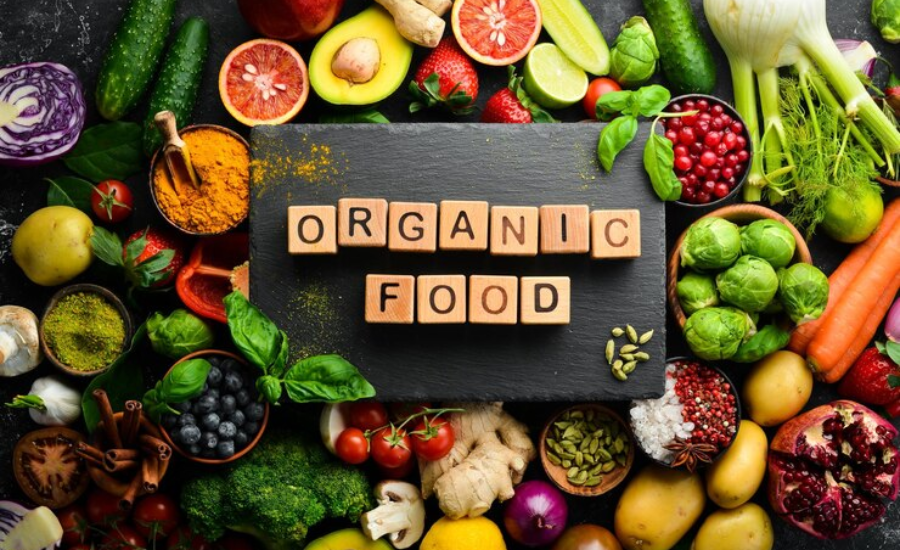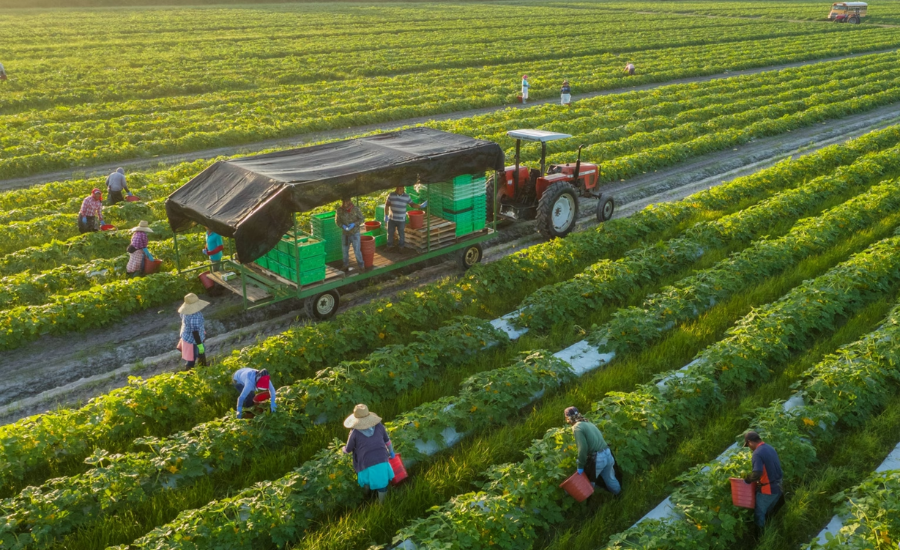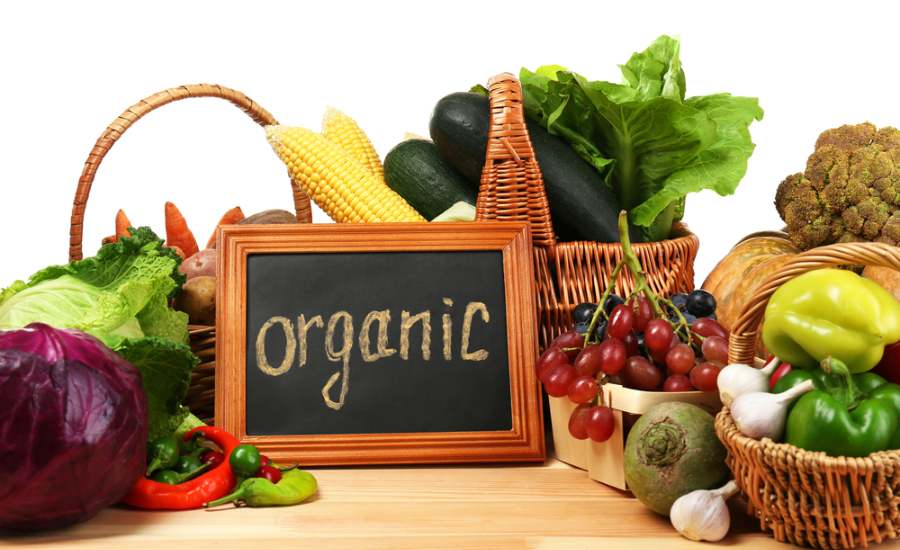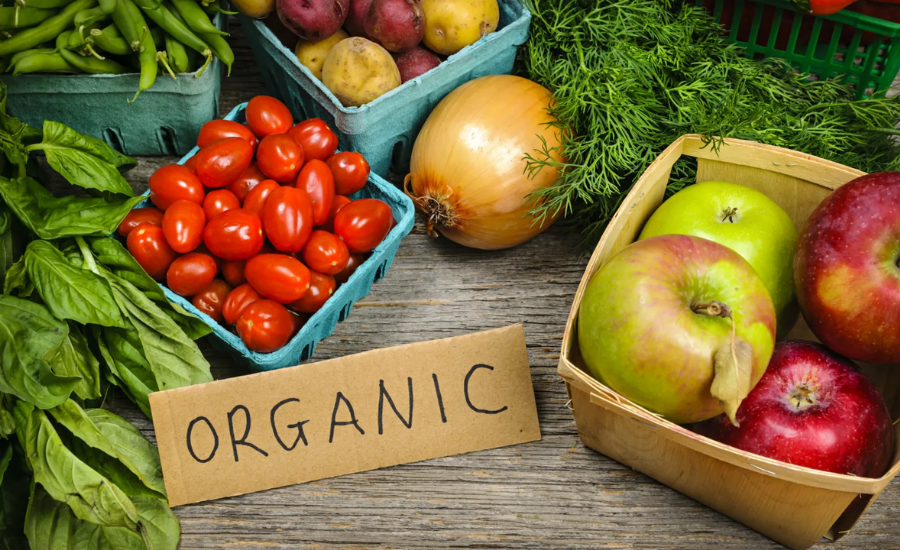It is a word that has crept into the daily language of the contemporary world, branding everything from the apples we buy at the supermarket to the cotton T-shirts we wear. But what exactly is ‘organic’? This comprehensive guide unveils all the fundamental aspects of organic, from definitions, practices, and advantages, to key considerations.
Decoding Organic: Understanding the Core Principles
In food and agriculture, the term ‘organic’ refers to production techniques that avoid synthetic inputs. Here’s a breakdown of key organic principles:
No Synthetic Pesticides or Herbicides

Organic farming prohibits the use of man-made chemicals to control pests and weeds. Instead, it relies on natural methods such as:
- Crop Rotation: Alternating the types of crops grown in each field to break pest and disease cycles.
- Beneficial Insects: Introducing or encouraging natural predators of common pests.
- Pest Control Solutions: Using natural substances like neem oil or diatomaceous earth.
No Genetically Modified Organisms (GMOs)
Its production avoids genetically engineered crops and animals. This means:
- Crops and livestock are grown and raised naturally.
- There is a focus on preserving the genetic integrity of species.
Focus on Soil Health
Its practices aim to nourish the soil, fostering a healthy ecosystem teeming with beneficial microbes. This is often achieved through techniques like:
- Composting: Adding decomposed organic matter to the soil to improve its quality.
- Cover Cropping: Planting specific crops that enrich the soil with nutrients and prevent erosion.
Animal Welfare
Its livestock farming emphasizes the well-being of animals. Key aspects include:
- Animals have access to the outdoors.
- They are not given routine antibiotics or growth hormones.
- They are fed organic feed.
Sustainable Practices

Its farming promotes practices that minimize environmental impact, conserve water resources, and promote biodiversity. This includes:
- Reducing carbon footprints through eco-friendly farming techniques.
- Conserving water through efficient irrigation systems.
- Encouraging a diverse range of plants and animals on farms to maintain ecosystem balance.
Advantages
Health Benefits
- Reduced Exposure to Chemicals: Consuming organic produce reduces the risk of ingesting harmful pesticides and herbicides.
- Nutrient-Rich Foods: Some studies suggest that organic foods may have higher nutritional value.
Environmental Impact
- Soil Conservation: It practices help maintain healthy and productive soil.
- Water Quality: Reduced chemical runoff leads to cleaner water sources.
- Biodiversity: Encouraging a variety of species promotes a balanced ecosystem.
Ethical Considerations
- Animal Welfare: Its farming practices ensure better living conditions for livestock.
- Sustainable Development: Its farming supports long-term agricultural sustainability.
Things to Note When Choosing Organic

Certification and Labels
- Look for official organic certification labels to ensure products meet organic standards.
- Understand the difference between ‘100% Organic’, , and ‘Made with Organic Ingredients’.
Cost
- Its products often cost more due to more labor-intensive farming practices and lower yields.
- Consider the long-term health and environmental benefits when evaluating the cost.
Availability
- Its products may not be available everywhere, though many supermarkets and specialty stores now carry a range of organic options.
- Farmers’ markets and direct-from-farm purchases are excellent sources of organic produce.
FAQS
What does “organic” mean?
It is refers to food and agricultural products produced without synthetic pesticides, herbicides, GMOs, or routine use of antibiotics and growth hormones. Organic farming practices emphasize soil health, animal welfare, and sustainable methods.
How do I know if a product is truly organic?
Look for official Its certification labels on products. These labels, such as USDA Organic, indicate that the product meets specific Its standards set by certifying bodies.
Are organic foods healthier than conventional foods?
Some studies suggest that foods may have higher nutritional value and lower levels of pesticides. However, the health benefits can vary depending on the specific food and its production methods.
Why do organic products cost more?
Its farming is more labor-intensive and often yields lower quantities compared to conventional farming. The higher cost reflects these increased production efforts and the sustainable practices employed.
What are the environmental benefits of organic farming?
Its farming helps conserve soil, reduce water contamination from chemical runoff, and promote biodiversity by encouraging diverse species and eco-friendly farming techniques.
Can I trust organic labels on imported products?
Imported products can be trusted if they carry a certification from a recognized certifying body. Ensure the label meets the organic standards of your country or region.
Is organic food better for the environment?
Yes, Its farming practices are designed to minimize environmental impact. They conserve water, reduce pollution, enhance soil health, and promote biodiversity.
How does organic farming benefit animals?
Its livestock farming emphasizes animal welfare, providing animals with outdoor access, to organic feed, and prohibiting routine antibiotics or growth hormones, leading to better living conditions for the animals.
Conclusion
The term “organic” encompasses a wide range of practices and principles aimed at producing food and products in a way that is beneficial for consumers, animals, and the environment. Understanding the core principles, advantages, and considerations of Its production allows consumers to make informed choices that align with their health goals and ethical values. Whether purchasing groceries, clothing, or beauty products, opting for organic means supporting sustainable and ethical practices that benefit the planet and future generations.
Stay in touch for more updates and alerts: Vents Tribune!

